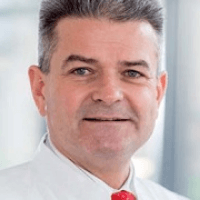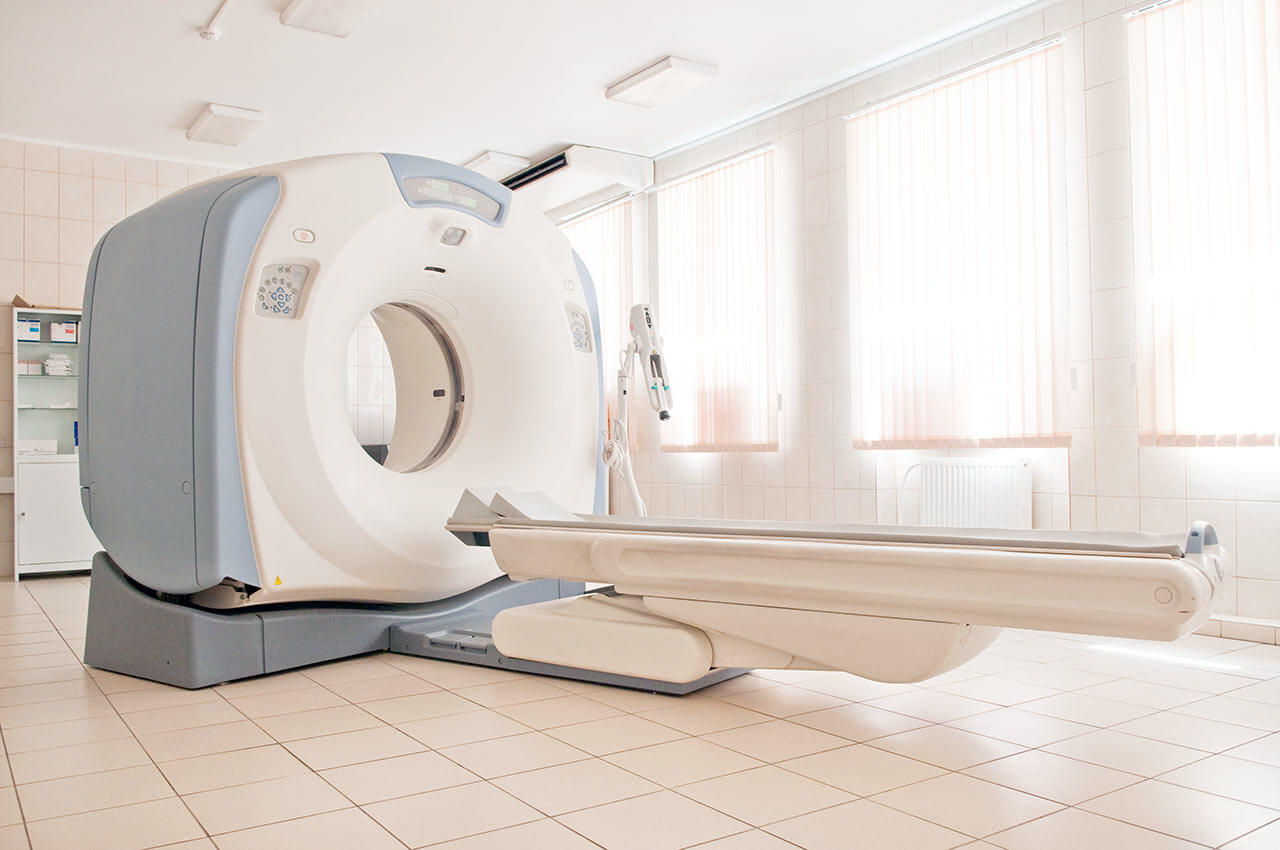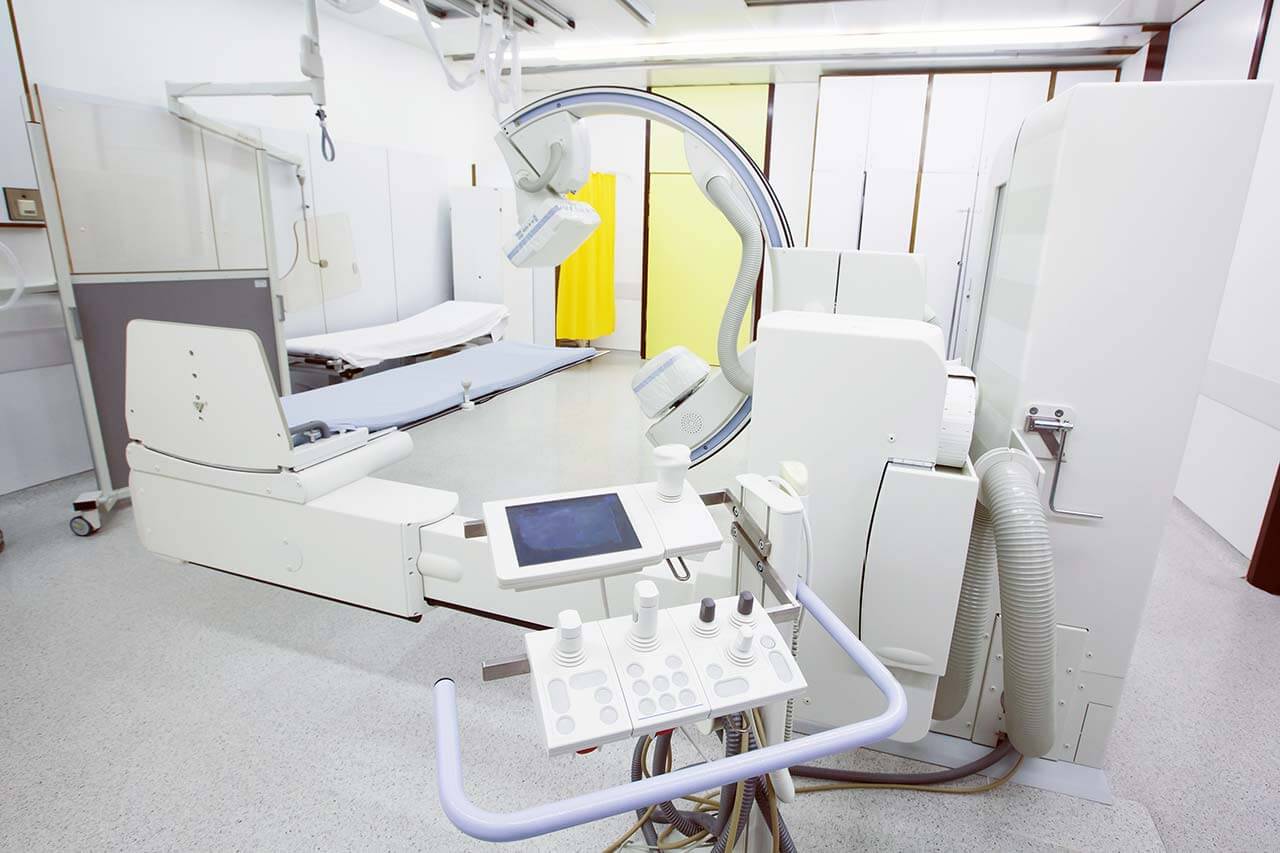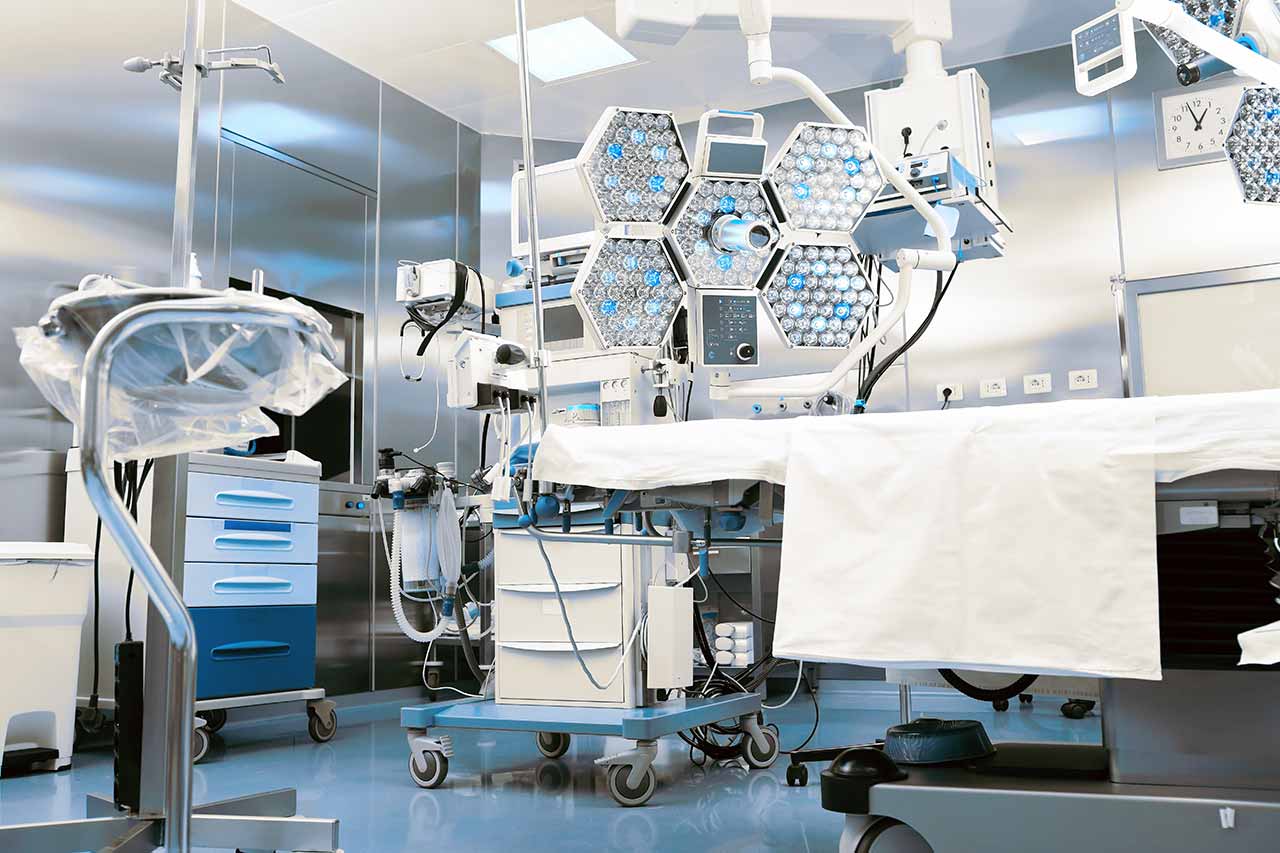
The program includes:
- Initial presentation in the clinic
- history taking
- general clinical examination
- laboratory examination:
- complete blood count
- biochemical blood analysis
- general urine analysis
- hormone test (TSH, cortisol)
- ultrasound examination
- 24-hours blood pressure measurement
- 24-hours ECG monitoring
- CT/ MRI (if clinically indicated, additional cost is 650/1200 €)
- nursing staff services
- elaboration of individual treatment plan
Required documents
- Medical records
- Results of hormone blood tests (if available)
Service
You may also book:
 BookingHealth Price from:
BookingHealth Price from:
About the department
According to the Focus magazine 2017, the Department of Endocrinology and Diabetology at the University Hospital Freiburg ranked among the top German departments specializing in diabetes mellitus treatment!
The Department offers the full range of services in these medical fields. The main clinical focuses include the diagnostics and treatment of diseases of the endocrine system (thyroid gland, parathyroid glands, adrenal glands, pituitary and pancreas), as well as the diagnostics and treatment of type I and II diabetes mellitus. The outpatient clinic of the department annually treats about 5,000 patients, who receive medical care according to the strictest international standards. The department is headed by Prof. Dr. med. Jochen Seufert, who has an excellent international reputation and long clinical experience. According to the Focus magazine 2017, he was included in the rating of top German physicians!
The most important focus of the department is the treatment of type I and II diabetes mellitus. For the outstanding achievements in this field, the department is recognized as a certified Diabetes Center (German Diabetes Society). The specialists of the department provide numerous consultations on all aspects of this pathology. A unique offer of the department is a special school for diabetes patients. The classes at school are aimed at teaching patients a new way of life with diabetes.
The main activities of the school include:
- Programs for patients with type II diabetes mellitus who do not receive insulin therapy
- Programs for patients with type II diabetes mellitus who receive insulin therapy
- Programs for patients with type II diabetes mellitus who receive intensive insulin therapy
- Programs for patients with arterial hypertension
- Programs for patients with type I diabetes mellitus who receive intensive insulin therapy
- Programs for patients with diabetes mellitus who use insulin pumps
- Individual courses on measuring blood glucose levels
- Individual courses on the use of insulin injections
The service range of the department includes:
- Diagnostics and treatment of type I and II diabetes mellitus
- Diagnostics and treatment of metabolic bone disorders (for example, osteoporosis)
- Measurement of bone mineral density (osteodensitometry) using CT, ultrasound and innovative DEXA method
- Ultrasound diagnostics and treatment of thyroid diseases, including goiter, Hashimoto thyroiditis, Graves disease and thyroid cancer
- Infusion and injection therapy for endocrine diseases and diabetes mellitus
- Continuous blood sugar measurement
- Self-help groups
- Special school for patients with diabetes mellitus
- Diagnostics and treatment of diabetic foot syndrome
- Diagnostics and treatment of lipid metabolism disorders
- Diagnostics and treatment of neuroendocrine tumors
- Counseling on obesity
- Medical care for patients with gestational diabetes
- Other medical services
Curriculum vitae
- 1983 - 1989 Study of Medicine at the Universities of Würzburg (Germany) and Innsbruck (Austria).
- 1990 - 1995 Intern and Fellow in the Department of Endocrinology, Diabetology and Gastroenterology, University of Würzburg, Germany.
- 1995 - 1998 Research Fellowship and Instructor, Harvard Medical School, Massachusetts General Hospital, Joslin Diabetes Center, Boston, USA.
- 1998 - 2006 Fellow in the Department of Endocrinology, Diabetology and Gastroenterology. Habilitation, Consultant and Head of the Department of Endocrinology, Metabolism and Molecular Medicine, University of Würzburg, Germany.
- Since 2006 Full Professor (W3) of Internal Medicine, Head of the Department of Endocrinology and Diabetology, University Hospital Freiburg.
Research Focuses
- Molecular and cellular biology of the endocrine pancreas.
- Regenerative strategies for the treatment of diabetes mellitus, stem cell therapy, pancreatic islet transplantation.
- Clinical trials in diabetes mellitus, gestational diabetes, osteoporosis, endocrine disorders.
Scientific Awards
- Schoeller Junkmann Research Prize of the German Society of Endocrinology.
- Theodor Frerich Prize of the German Society of Internal Medicine.
- Ernst Friedrich Pfeiffer Prize of the German Diabetes Society.
Photo of the doctor: (с) Universitätsklinikum Freiburg
About hospital
The University Hospital Freiburg is famous for its rich history and is one of the oldest and most prestigious medical facilities in Germany (one of the three best medical institutions in the country). The hospital was based on the Faculty of Medicine of the Albert Ludwig University of Freiburg, which celebrated its 550th anniversary in 2007. It should be noted that the hospital is proud of its world-renowned specialists, many of whom during their work here have become Nobel laureates.
The medical facility represents all fields of modern medicine. It consists of 42 departments, 11 institutes and 10 interdisciplinary centers. The highly qualified doctors of the hospital deal with the treatment and rehabilitation of patients with both common and rare diseases. All departments and institutes of the hospital take an active part in fundamental researches of international scale, due to which patients have access to the very latest achievements of medicine, advanced diagnostic methods, state-of-the-art medical equipment and proven effective methods of therapy.
The hospital has a variety of medical achievements, for example, the world's first TIPS procedure, the first implantation of the Jarvik-2000 artificial heart in Europe, the first robotic-assisted surgery on the brain, and the first combined cardiopulmonary transplantation in the land of Baden-Württemberg. In 2004, the University Hospital Freiburg became the first German hospital, which performed kidney transplantation in the incompatibility of blood groups. At the moment, the hospital belongs to medical centers with the greatest experience in performing such an operation.
An interdisciplinary approach to treatment, highly qualified staff, as well as individual patient care and a pleasant environment are key to the hospital’s success.
Photo: (c) depositphotos
Accommodation in hospital
Patients rooms
The patients of the hospital are provided with comfortable rooms with a pleasant design, which create a conducive atmosphere for recovery. The standard furnishing of the patient room includes a telephone, a free radio and TV, a device for calling medical staff, lockers and a safe, an adjustable bed, a chair and a table. The pediatric departments are designed with play areas. The patient may be accommodated in a single or double enhanced-comfort room (for example, with an ensuite bathroom) at an additional cost.
Meals and Menus
The patients are offered good three meals a day with a large selection of dishes. The patients inform about their wishes to the menu in advance, and this information is transmitted to the kitchen. Throughout the day, patients may drink mineral water and tea, which can be found in the department on special tables. The bedridden patients receive drinks from the nursing staff. Other drinks may be purchased at the hospital’s cafeterias and bistro, where patients can come along with visitors.
If you do not eat some products due to intolerance or other personal reasons, please notify the nursing staff in advance, so that all your wishes to be taken into account when preparing the menu.
Further details
Standard rooms include:
Television
All patient rooms have a free radio and TV. The patients can also watch the hospital’s own 24-hour channel with a varied program and interesting information.
Accompanying person
At the availability of free beds, the accompanying person may be accommodated in the same room with the patient, at an additional cost. In addition, the hospital offers special accommodation conditions for patients requiring long-term hospitalization. Parents have at their disposal special apartments in the children's hospital.





